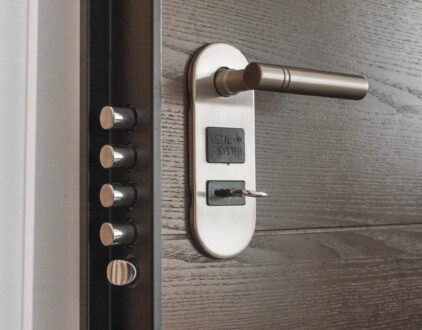Homeownership is a big part of the American dream. And because owning a home is such a significant milestone for so many, it’s important to be vigilant against various scams that target vulnerable, unsuspecting potential and current homeowners. From deceptive practices to outright fraud, home-related scams not only lead to financial loss but emotional distress as well. To protect yourself, here are five common home scams to watch out for.
1. Foreclosure Rescue Scams
Facing foreclosure is no joke. It can be a pretty terrifying experience, and without support, it can cause homeowners to make rash decisions. Knowing this, many scammers prey on vulnerable homeowners who are desperate to keep their homes.
During a foreclosure rescue hoax, scammers pretend to help homeowners avoid foreclosure by offering loan modification or refinancing services for a price. But instead of delivering on their promises, they typically put homeowners in an even worse financial situation than they were in before.
To prevent this from happening to you, take caution when someone tries to offer you unsolicited help. Instead, seek help from more reputable housing counselors or legal professionals to avoid paying a hefty price down the line.
2. Rental Scams
Another way con artists deceive unsuspecting homeowners is through rental scams. Understanding the demand for rental properties, many scammers pretend to be landlords, marketing incredible properties that they don’t really own.
They tend to ask for a security deposit or rent payment upfront. And once they receive it, they often disappear, leaving no trace behind.
In addition to this, many tricksters post fake listings that have misleading or downright untrue information like unbeatable prices or amenities that don’t actually exist.
So if you’re in the market to rent, be sure to verify the legitimacy of listings by conducting thorough research on landlords or property management companies. And never, ever make a payment until you’ve seen the property in question in person.
3. Home Improvement Scams
Home improvement is big business, with Americans spending a whopping $1 trillion on upgrading their homes. And because of this, many scammers see the big bucks and want a piece of the pie for themselves.
In home improvement scams, grifters advertise certain services like roofing repairs, driveway paving, or landscaping at ridiculously cheap prices. But rather than doing quality work, they often use substandard materials, perform shoddy workmanship, or even ghost the project before finishing.
If you meet a home improvement scammer, they may try to pressure you into unnecessary repairs or upgrades in order to score more money. To avoid becoming prey to this unique hoax, don’t pick the first contractor you see, but instead, be open to receiving multiple quotes.
In addition to this, double-check that your contractor is licensed and research the reputation of companies before hiring them, including checking references.
4. Equity Stripping
Equity stripping hoaxes target people who have a lot of equity in their properties — usually seniors or homeowners with serious financial difficulties. Typically, scammers offer to help homeowners with refinancing or home equity loans, promising that they can secure cash upfront or lower monthly payments.
However, instead of helping, they make things worse by charging sky-high fees, inflating interest rates, or including hidden clauses in the loan agreements. This effectively strips the equity from the property.
And of course, as a result, homeowners are put at risk of losing ownership of their homes or facing foreclosure. In order to protect yourself, always make it a point to carefully review your loan documents. And if you need help, seek the advice of a financial advisor who’s more likely to spot deals that seem too good to be true.
5. Title Fraud
Title fraud is another common trick that scammers keep up their sleeves. It involves a scammer fraudulently transferring ownership of a property into their name, usually by using forged documents or identity theft.
Then, as soon as they have control of the property, they take out mortgages or sell it without the rightful owner even knowing. Many times, victims of title fraud only realize they’ve been tricked when they receive foreclosure notices or eviction orders.
So to keep yourself safe, be sure to keep track of your property’s title records and consider purchasing title insurance for extra peace of mind. And if you notice anything suspicious, report it to your local authorities.
popular posts
- 1It’s Black Business Month, So Let’s Go Shopping and #BuyBlack!
- 2These Home Decor Items Will Instantly Make Your Space Look Outdated
- 3Black-Owned Home Decor Stores To Support Across the United States
- 4A Look Inside Elon Musk's Tiny $50,000 House
- 57 Black and Multicultural Designers To Follow For Design Inspo
homeownership
Home is a safe place where relationships flourish and the cornerstone of neighborhoods. We believe it’s the setting that surrounds your phenomenal story.

Up to 30% Off: Top of the Line Home Security Systems
by Arielle Clay | January 19, 2023

Front Yard Curb Appeal Tips for the Spring Season
by Melody Brown | January 19, 2023
Spaces
Whether it’s luxury or ease, every area of your home should be as fabulous and unique as you.
FOLLOW ALONG ON INSTAGRAM
#homeandtexture
Find us on social for more home inspiration where culture, personal style, and sophisticated shopping intersect to help you create a home where you love to live.






